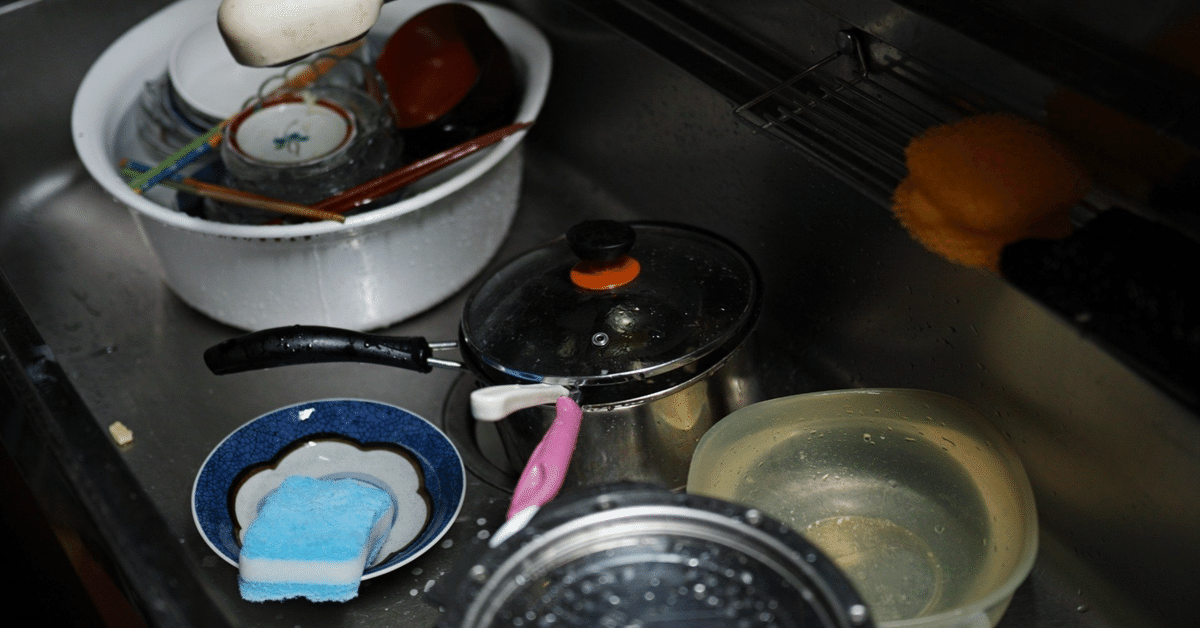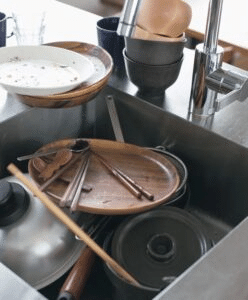
食器洗いで丸分かりの仕事力!?性格とロジカル思考の関係性
私、食器洗いが上手なんですw ※食洗機ではなく、手洗いを前提とした記事です
食器洗いの様子を観察すれば(1)性格(2)ロジカル思考力が、丸分かりです!ので、採用試験に取り入れると良いでしょうね。
食器洗いの話、Kindle書籍「 ロジカル質問術 」に書きたかったんです。が、外しました。共感し辛い例え話やろな…と思ったからです。が、食器洗いをする度に「 書きたい! 」欲求がムクムクと湧き上がるので、書いてしまうことにしました。あ、ちなみに「 ロジカル思考術 」ですが「 プレゼン超技術 」を先に読んでください!理解力が3倍になります。※著者本人は、プレゼン超技術を50回以上読んでいる!
食器洗いから丸分かりのビジネス筋は「 目的思考 」と「 段取り 」です
食器洗いとは、食器を洗う仕事ではありません。
仮に私の部下から「 食器洗い終わりました 」と報告があれば、目的に対しての報告ができるまで私から100万回注意され続けます。
「 ロジカル思考術 」第3章の【神アプリ|01】目的と手段、でビジネスシーンの具体例を取り上げて詳細に解説しています
食器洗いは「 手段 」です。食器洗いの目的、What for ? は「 食器が綺麗になる(汚れが落ちている) 」です。「 食器洗い終わりました 」と報告するタイプの人の食器は、だいたい汚れが残ったままです。特に、お皿の裏側に油が残っています。間違いありませんw! かつ、シンク周辺に飛び散った水は放置されたままです。
コップを見れば、段取り力が分かる?
食器洗いはコップから
当たり前のことですが、脂っこい皿を洗った後のスポンジでコップを洗ったら、コップは油っぽいコップに仕上がります。食器洗いは(1)油汚れが少ない食器(2)油まみれの食器の順番で洗っていきます。なんなら油まみれの食器は「 ヘラ 」で、先に油を落としてから洗います。油まみれのスポンジで食器を洗ったら、食器は見事に油まみれです。
(何も考えず)手に取った食器から順番に洗っている部下は、頭を使って洗えるようになるまで私から100万回注意され続けます。
一次が万事です。食器洗いの話ではありません。あ、もちろん飲食店の話をしていません。目的思考と段取り、つまりロジカル思考力の話です。
性格まで分かっちゃう?
食器洗い後の、乾燥ラックに重ねられた食器の様子で、その人が繊細な人か?大雑把な人か?が分かります。ま、崩れ落ちない程度に重ねられていたら、どんな重ね方でも問題はないんですけどね。
私が、最も関心を寄せているのが食器洗い前の「 包丁の扱い 」です。
食器と包丁を一緒にシンクに入れる人とは仕事したくありません(参考画像)

他の食器に紛れて包丁があったら怪我する可能性しかありません。その配慮ができない人は、一発不採用!です。
ーーーーー
ってなことを、Kindle書籍「 ロジカル思考術 」に書きたかったんです。が「 どゆこと? 」「 食器洗いと仕事は関係ないけど? 」となる人もいるので外しましたw
ーーーーー
こういう日常のシーンだからこそ「 素 」が隠しきれません。面接って、そもそも「 非日常 」の場面です。ので、素とか人柄ではなく「 スピーチ力 」「 練習力 」で、なんとなく誤魔化せちゃうんですよね。食器洗い採用!意外と、マジで書いていますw
長年思っていたことがようやく書けた!あースッキリした!
英語学習のため記事をAI(COPILOT)で全文英訳
Understanding Work Skills Through Dishwashing!? The Relationship Between Personality and Logical Thinking
I’m really good at washing dishes! (This article is about handwashing, not using a dishwasher.)
By observing how someone washes dishes, you can understand their (1) personality and (2) logical thinking skills. This could be useful in job interviews.
I wanted to write about dishwashing in my Kindle book “Logical Questioning Techniques,” but I didn’t include it because I thought it might be hard to relate to. However, every time I wash dishes, I feel the urge to write about it, so here it is. By the way, before reading “Logical Thinking Techniques,” please read “Advanced Presentation Techniques” first. It will triple your understanding. (The author has read “Advanced Presentation Techniques” over 50 times!)
The business skills you can see from dishwashing are “goal-oriented thinking” and “planning.”
Dishwashing is not just about washing dishes. If my subordinate reports, “I finished washing the dishes,” I would correct them a million times until they can report based on the goal.
In Chapter 3 of “Logical Thinking Techniques,” I explain the concept of goals and means in detail with business examples.
Dishwashing is a “means.” The goal of dishwashing is to have “clean dishes.” People who report “I finished washing the dishes” usually leave some dirt on the dishes, especially oil on the back of plates. Also, they often leave water splashed around the sink.
You can tell someone’s planning skills by how they wash cups.
It’s obvious, but if you wash a cup with a sponge that just cleaned an oily plate, the cup will end up oily. You should wash dishes in the order of (1) less oily dishes and (2) very oily dishes. For very oily dishes, use a spatula to remove the oil first. If you wash dishes with an oily sponge, they will become oily.
Subordinates who wash dishes in the order they pick them up without thinking will be corrected a million times until they can wash dishes logically.
This isn’t just about dishwashing. It’s about goal-oriented thinking and planning, which are parts of logical thinking.
You can even tell someone’s personality by how they stack dishes on the drying rack. If the dishes are stacked in a way that they won’t fall, any stacking method is fine.
What interests me most is how people handle knives before washing dishes.
I don’t want to work with people who put knives in the sink with other dishes.
If a knife is mixed with other dishes, it can cause injuries. People who can’t consider this are immediately disqualified.
I wanted to write about this in my Kindle book “Logical Thinking Techniques,” but I didn’t because some people might not understand the connection between dishwashing and work.
In everyday situations like this, people’s true nature is revealed. Interviews are not everyday situations, so people can fake their personality with “speech skills” and “practice.” Dishwashing in interviews might be a good idea!
I’ve finally written what I’ve been thinking for years! I feel so relieved!
この記事が気に入ったらサポートをしてみませんか?
